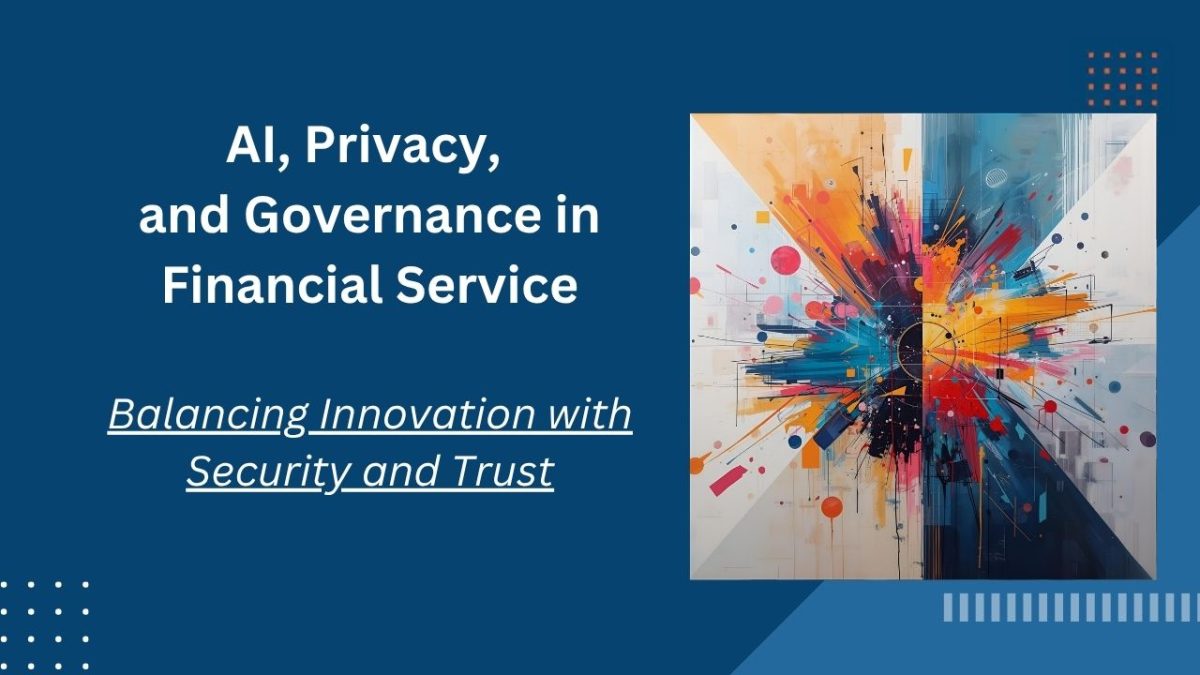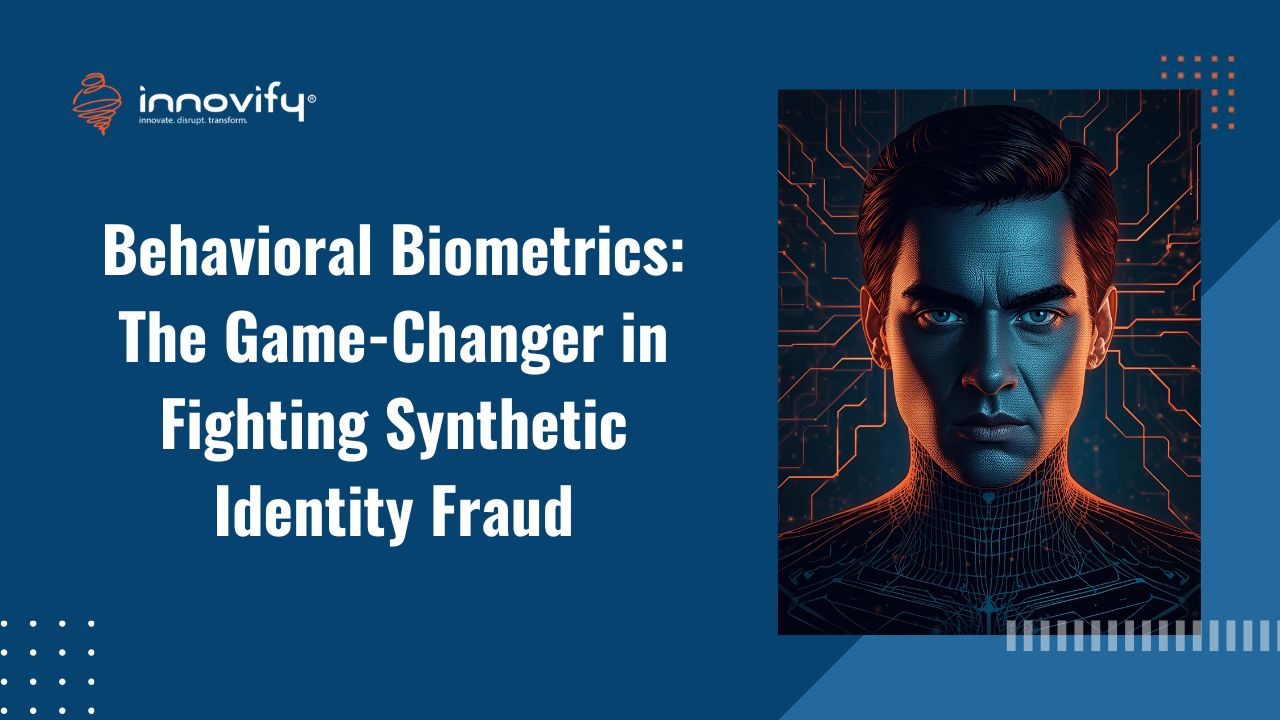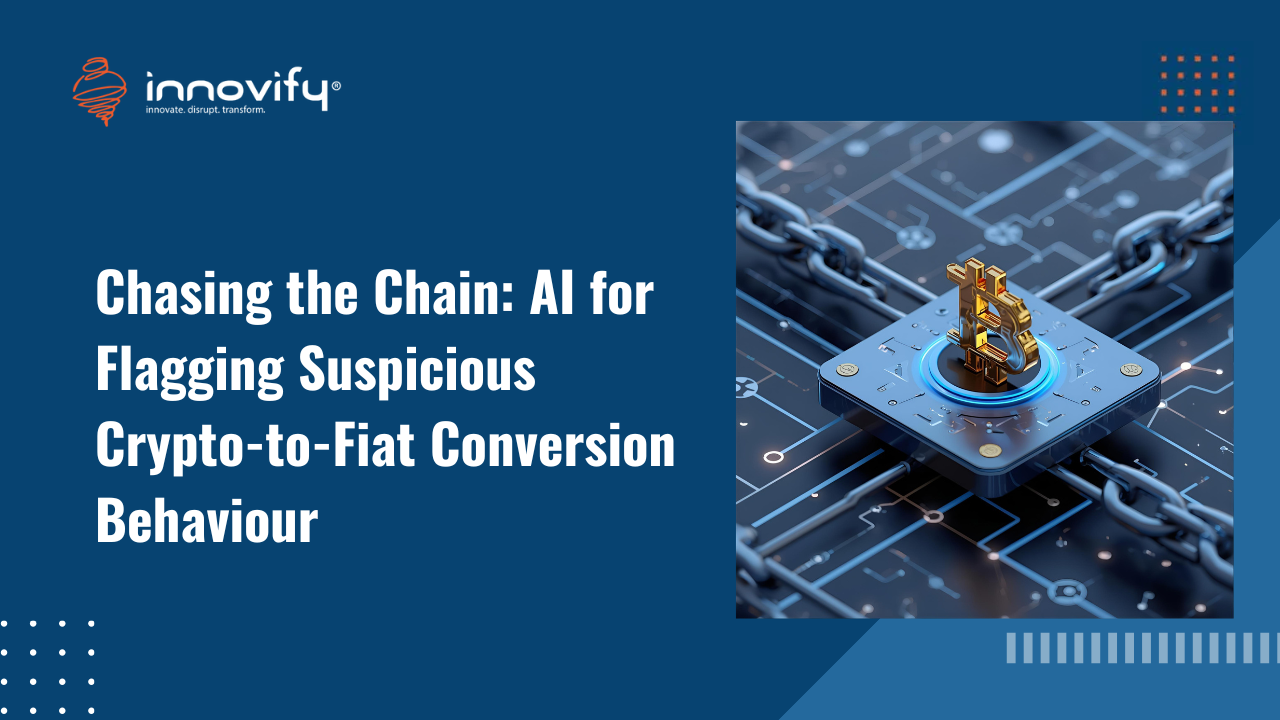AI/ML
AI, Privacy, and Governance in Financial Services: Insights from Industry Leaders
Artificial Intelligence is rapidly transforming the financial services industry, driving innovation in fraud detection, compliance automation, and personalized customer experiences. However, when sensitive data enters the equation, innovation often slows down. Privacy and governance challenges remain the primary barriers to scaling AI securely within highly regulated environments.
At a recent webinar titled “AI, Privacy, and Governance in Financial Services”, hosted by Protopia AI, experts from Sanctifai, Protopia AI, and a former Chief Compliance Officer for AI at a leading global bank (BNY) came together to discuss one of the industry’s toughest problems: how to unlock the potential of AI without exposing sensitive data.
AI’s Promise and the Privacy Challenge
The financial services sector has been at the forefront of AI adoption, using data-driven intelligence to enhance fraud prevention, risk management, and customer engagement. Yet, the same data that powers these innovations such as financial statements, identity documents, and transaction histories, is also what limits AI experimentation.
Brad Lawler, Founder of Sanctifai, shared that startups have traditionally faced barriers when attempting to collaborate with financial institutions. Large institutions often resist sending sensitive information outside their secure environments, while startups struggle to build scalable solutions within those constraints. According to Lawler, this creates a fundamental tension between innovation and security, one that new privacy-preserving technologies are beginning to resolve.
How Banks Evaluate AI Use Cases
From the institutional side, Jeremiah Sadow, formerly Chief Compliance Officer for AI at a leading global bank, provided an inside look at how large financial organizations vet AI use cases. He described a cross-functional approval process that includes technology, legal, compliance, and third-party governance teams.
Each proposed AI project is examined through several lenses: the intended business use, the type and sensitivity of the data involved, and where that data will reside throughout the process. Whether a model can run in the cloud or must remain on-premises depends on risk classification, data residency laws, and internal governance standards.
Sadow noted that even when business value is clear, projects often stall because sensitive data may be exposed in plain text during model inference, when data is actively processed by an AI model. This “privacy gap” is now one of the biggest challenges slowing down enterprise AI adoption.
Understanding the Privacy Gap in AI Inference
Eiman Ebrahimi, CEO of Protopia AI, outlined how this privacy gap arises. Most institutions already protect data at rest and in transit through encryption. However, once data reaches an AI endpoint for processing, it must typically be decrypted so that the model can interpret it. At that moment, data exists in an unprotected state within the server’s memory or logs, creating a potential vulnerability.
In financial services, where the data often includes customer records, proprietary code, and financial transactions, even temporary plain-text exposure can violate compliance requirements. This technical reality has forced many organizations to rely on costly isolated environments or abandon certain use cases altogether.
Protopia AI’s Solution: Stained Glass Transform
Protopia AI’s Stained Glass Transform (SGT) technology directly addresses this challenge. As Ebrahimi explained, SGT transforms sensitive data within the client’s trusted environment before it is sent for AI inference. Instead of transmitting readable text, SGT generates stochastic embeddings that cannot be reversed to the original data yet remain interpretable by the model.
This enables financial institutions and third-party developers to process sensitive data without ever exposing it in plain text, even during inference. The result is a significant reduction in privacy risk and infrastructure cost, with reported GPU utilization improvements and cost reductions ranging from three to ten times compared to isolated deployment models.
From a technical perspective, SGT integrates seamlessly into existing inference pipelines. It functions as a lightweight neural network container that runs just before data is sent to the model. Latency overhead remains minimal, typically around ten milliseconds, making it practical for production environments.
Changing the Economics of Secure AI
For startups like Sanctifyai, the implications are transformative. With SGT, smaller firms can now operate in shared or serverless environments while maintaining compliance with the strictest privacy standards. This eliminates the need to run individual secure instances for every institutional client, dramatically lowering operational costs and expanding market reach.
From the enterprise standpoint, solutions like SGT accelerate the path from proof of concept to production. Institutions can safely collaborate with innovative third parties, experiment with sensitive datasets, and deploy high-value AI applications more quickly. As Sadow emphasized, each approved use case that successfully mitigates risk helps reduce overall organizational friction and builds trust for future innovation.
Innovify’s Perspective
At Innovify, we believe the future of AI in financial services depends on aligning three critical pillars: privacy, governance, and scalability. The insights shared during the webinar reinforce what we observe daily in our work with banks, fintechs, and AI-driven startups.
To truly scale AI responsibly, organizations must:
- Design privacy-by-default architectures that protect sensitive data during storage, transmission, and inference.
- Implement governance frameworks that integrate compliance teams early in the development cycle.
- Build cost-efficient AI delivery models that allow innovation without sacrificing security or profitability.
Technologies such as Protopia AI’s Stained Glass Transform represent a significant step forward in achieving these goals. They make it possible to harness the power of generative and analytical AI safely, even in one of the world’s most regulated sectors.
Moving Forward
Financial institutions are under increasing pressure to modernize, yet they must do so responsibly. Privacy-preserving AI architectures offer a path where innovation and compliance can coexist. For leaders exploring AI within banking, payments, or wealth management, this balance will define competitive advantage in the coming decade.
At Innovify, we help financial organizations navigate this transformation through secure AI architecture design, implementation, and governance consulting. Our team combines deep domain expertise with hands-on experience in deploying privacy-aware AI and ML systems.
If you would like to explore how to safely unlock AI innovation in your organization, we invite you to schedule a free AI roadmap consultation with our experts.
Innovify – Innovate securely. Scale confidently.




